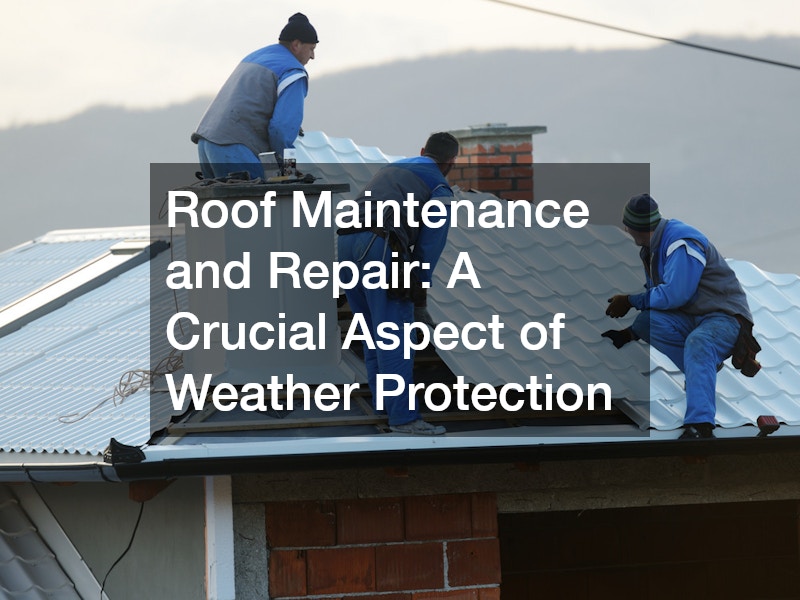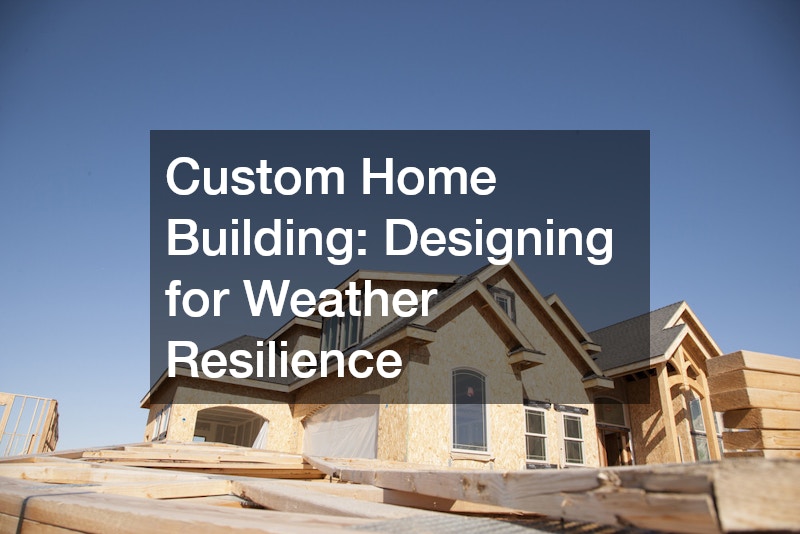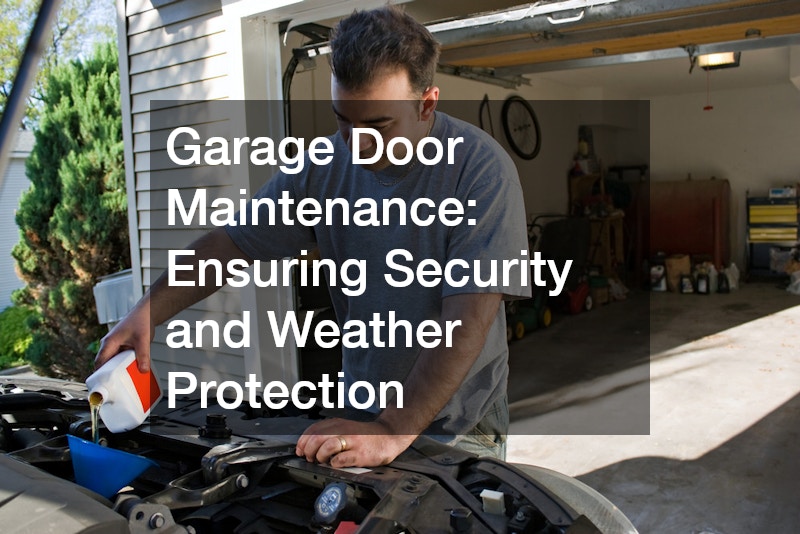Severe weather can strike at any time, bringing with it the potential for significant damage to your home. From heavy rains and strong winds to snowstorms and extreme temperatures, it’s essential to ensure your home is well-protected against the elements. Proper preparation and maintenance are key to safeguarding your property, and working with experienced professionals can make all the difference. In this comprehensive guide, we’ll explore the essential services that help protect your home from severe weather, ensuring that it remains safe and secure throughout the year.
1. Building Waterproofing: The First Line of Defense Against Water Damage
Water damage is one of the most common and costly issues homeowners face, especially during heavy rainfall or snowmelt. Building waterproofing is an essential service that helps prevent water from penetrating your home’s foundation, walls, and basement. Proper waterproofing can protect your home from leaks, mold growth, and structural damage, ensuring that it remains dry and safe.
Building waterproofing typically involves several steps, including sealing cracks in the foundation, applying waterproof coatings to walls, and installing drainage systems to divert water away from your home. In some cases, sump pumps may be installed in basements to remove any water that does seep in. Waterproofing your home is especially important if you live in an area prone to heavy rainfall or if your property is situated on a slope where water runoff is common.
Working with a professional building waterproofing company ensures that the job is done correctly and that your home is fully protected. Regular inspections and maintenance of your waterproofing system are also important to ensure that it continues to function effectively over time.
2. Roof Maintenance and Repair: A Crucial Aspect of Weather Protection

Your roof is your home’s first line of defense against severe weather, making regular maintenance and timely repairs essential. Local roofers play a crucial role in ensuring that your roof remains in good condition, capable of withstanding heavy rain, snow, hail, and high winds.
Regular roof inspections are important for identifying potential issues before they become major problems. Local roofers can check for damaged or missing shingles, leaks, and signs of wear and tear that could compromise your roof’s integrity. Addressing these issues promptly can prevent water from seeping into your home, which can lead to costly repairs.
In addition to regular maintenance, timely roof repairs are crucial during stormy weather. High winds can cause shingles to lift or even blow off, while hail can create dents and cracks that allow water to penetrate. Local roofers can quickly repair these damages, ensuring that your roof continues to protect your home from the elements.
For homes in areas prone to severe weather, consider investing in impact-resistant roofing materials that offer enhanced protection against hail and wind. These materials are designed to withstand extreme conditions, reducing the likelihood of damage during storms.
3. Window and Door Installation: Strengthening Your Home’s Weak Points

Windows and doors are often the most vulnerable points in a home during severe weather. High winds, flying debris, and heavy rain can easily damage poorly installed or outdated windows and doors, leading to leaks and even structural damage. Working with professional window installers and door installers is essential for ensuring that these entry points are secure and capable of withstanding the forces of nature.
Modern windows are designed to offer improved energy efficiency and weather resistance. Double-pane or triple-pane windows with impact-resistant glass can significantly reduce the risk of breakage during storms. Additionally, properly sealed windows prevent drafts and water infiltration, keeping your home warm and dry.
Window installers can assess your current windows and recommend upgrades that enhance your home’s protection. If you live in a region prone to hurricanes or tornadoes, consider installing storm shutters or impact-resistant windows to provide an extra layer of security.
Similarly, doors should be sturdy and well-sealed to prevent water and wind from entering your home. Reinforced doors with heavy-duty frames and weatherstripping can provide added protection during severe weather events. Door installers can ensure that your doors are properly fitted and secure, reducing the risk of damage during storms.
In addition to windows and doors, don’t overlook the importance of garage doors in your home’s overall protection. Garage doors are often large and can be vulnerable to wind damage, particularly during hurricanes or tornadoes. Garage door repairs and maintenance are essential for ensuring that your garage door can withstand the pressure of high winds and remain securely closed during a storm.
4. HVAC Services: Keeping Your Home Comfortable and Safe
Extreme temperatures, whether hot or cold, can put a strain on your home’s HVAC system. Regular HVAC services are essential for ensuring that your heating and cooling systems are functioning properly, keeping your home comfortable and safe during severe weather.
Before the onset of winter, it’s important to have your heating system inspected and serviced by a professional HVAC technician. This includes checking the furnace, heat pump, and any associated ductwork to ensure that everything is in good working order. A well-maintained heating system not only keeps your home warm during cold snaps but also reduces the risk of breakdowns during a storm.
In the summer, your air conditioning system plays a crucial role in keeping your home cool during heatwaves. Regular maintenance, including cleaning the coils, changing filters, and checking refrigerant levels, ensures that your air conditioner operates efficiently. HVAC services can also identify potential issues before they lead to a system failure, preventing uncomfortable and potentially dangerous conditions during extreme heat.
In addition to routine maintenance, consider investing in a backup generator installation to ensure that your HVAC system remains operational during power outages. A backup generator can provide power to essential systems, including heating, cooling, and refrigeration, allowing you to maintain a comfortable and safe environment even during extended outages.
5. Masonry and Structural Repairs: Reinforcing Your Home’s Foundation
The integrity of your home’s foundation and masonry is critical to its ability to withstand severe weather. Cracks in the foundation, crumbling brickwork, and deteriorating mortar can all weaken your home’s structure, making it more vulnerable to damage from storms, earthquakes, and flooding.
A local masonry contractor can assess the condition of your home’s foundation and masonry, identifying any areas that require repair or reinforcement. Common masonry repairs include repointing, which involves replacing the mortar between bricks or stones, and sealing cracks in the foundation. These repairs not only improve the strength of your home but also prevent water from seeping into the walls and causing further damage.
In addition to foundation and masonry repairs, excavation services may be necessary to address drainage issues that could lead to water damage. Proper grading around your home ensures that water flows away from the foundation rather than pooling near the walls. Excavation services can also be used to install French drains, sump pumps, or other drainage systems that protect your home from flooding.
For homes in areas prone to earthquakes or landslides, more extensive structural repairs and reinforcements may be required. This can include bolting the foundation to the frame, adding shear walls, or installing retaining walls to prevent soil movement. A local masonry contractor with experience in seismic retrofitting can help ensure that your home is prepared for these types of natural disasters.
6. Custom Home Building: Designing for Weather Resilience

When building a new home, weather resilience should be a top priority. Custom home building allows you to design a home that is tailored to your specific needs and the unique challenges of your environment. By incorporating weather-resistant materials and construction techniques, you can create a home that stands up to severe weather and keeps your family safe.
One of the key benefits of custom home building is the ability to choose materials that offer enhanced protection against the elements. For example, impact-resistant roofing, hurricane-rated windows, and reinforced doors can all be incorporated into the design of your new home. Additionally, building materials such as concrete, brick, and stone offer greater durability and resistance to wind and water damage compared to traditional wood framing.
In areas prone to flooding, custom home building allows you to raise the foundation of your home, reducing the risk of water entering the living spaces. Elevated homes are also less susceptible to damage from storm surges and coastal flooding.
The layout and orientation of your home can also play a role in its weather resilience. For example, positioning the home to minimize exposure to prevailing winds or designing the roof with a slope that sheds water efficiently can reduce the risk of damage during storms. Custom home building gives you the flexibility to incorporate these and other design features that enhance your home’s ability to withstand severe weather.
Finally, working with experienced architects, builders, and contractors ensures that your custom home is built to the highest standards of safety and durability. These professionals can guide you through the process of selecting the best materials and construction methods for your specific location, ensuring that your new home is well-protected against the forces of nature.
7. Exterior Maintenance: Preparing Your Home for the Elements
Regular exterior maintenance is essential for keeping your home protected from severe weather. By addressing potential issues before they become major problems, you can ensure that your home remains in good condition and is better able to withstand the elements.
One of the most important aspects of exterior maintenance is ensuring that your home’s gutters and downspouts are clean and functioning properly. Clogged gutters can cause water to overflow, leading to damage to your roof, siding, and foundation. Regular cleaning and inspection of your gutters help prevent these issues and ensure that water is properly directed away from your home.
Window cleaning companies can also play a role in maintaining your home’s exterior. Clean windows not only improve the appearance of your home but also allow you to spot any cracks, leaks, or other issues that could compromise your home’s weather resistance. Regular cleaning and inspection by window cleaning companies ensure that your windows remain in good condition and are ready to withstand storms.
In addition to gutters and windows, it’s important to regularly inspect and maintain other exterior elements such as siding, paint, and trim. Cracked or peeling paint, damaged siding, and rotting wood can all create entry points for water and pests. Addressing these issues promptly helps maintain the integrity of your home’s exterior and prevents further damage.
For homes with chimneys, regular chimney maintenance is also important. A local masonry contractor can inspect your chimney for cracks, loose bricks, or damaged mortar, all of which can allow water to seep into your home. Chimney caps and flashing should also be checked to ensure they are securely in place and providing adequate protection against rain and debris.
Finally, don’t forget about your home’s landscaping. Trees and shrubs that are too close to your home can cause damage during storms, either by falling or by rubbing against the roof and walls. Regular trimming and removal of dead or overhanging branches reduce the risk of damage and keep your home safe.
8. Garage Door Maintenance: Ensuring Security and Weather Protection

Your garage door is not only an entry point for vehicles but also a critical barrier against severe weather. A damaged or malfunctioning garage door can compromise the security of your home and allow wind, water, and debris to enter your garage and living spaces. Regular garage door repairs and maintenance are essential for ensuring that your garage door remains in good working order and provides adequate protection during storms.
Common garage door issues include broken springs, misaligned tracks, and damaged panels. These problems can prevent the door from closing properly, leaving your home vulnerable to the elements. Garage door repairs should be performed by a professional technician who can quickly diagnose and fix the issue, restoring the door’s functionality and security.
In addition to repairs, regular maintenance of your garage door is important for preventing problems before they occur. This includes lubricating moving parts, checking the balance of the door, and inspecting the weatherstripping for signs of wear. Properly maintained weatherstripping helps seal the door against drafts, rain, and pests, keeping your garage and home dry and secure.
For homes in areas prone to hurricanes or high winds, consider upgrading to a wind-rated garage door. These doors are designed to withstand extreme forces and are less likely to fail during a storm. A reinforced garage door can make a significant difference in your home’s ability to withstand severe weather and prevent damage.
9. Protecting Against Flooding: The Role of Excavation Services
Flooding is one of the most destructive natural disasters, capable of causing extensive damage to your home and property. Proper preparation and the right services can significantly reduce the risk of flooding and protect your home from water damage.
Excavation services play a key role in flood prevention by ensuring that your property is properly graded and that water is directed away from your home. Grading involves shaping the land around your home so that water flows downhill and away from the foundation. Proper grading is essential for preventing water from pooling near your home’s walls, which can lead to leaks and foundation damage.
In addition to grading, excavation services can be used to install drainage systems such as French drains, dry wells, and swales. These systems help manage excess water and prevent it from accumulating on your property. French drains, for example, consist of a trench filled with gravel and a perforated pipe that collects and redirects water away from your home. Dry wells provide a place for excess water to collect and slowly seep into the ground, reducing the risk of surface flooding.
For homes in flood-prone areas, more extensive flood prevention measures may be necessary. This can include building retaining walls, elevating the foundation, or installing flood barriers. Excavation services can help with the preparation and construction of these protective measures, ensuring that your home is better equipped to handle heavy rainfall and rising water levels.
Working with experienced excavation professionals ensures that your property’s drainage and grading are done correctly, providing effective protection against flooding. Regular inspections and maintenance of these systems are also important for ensuring that they continue to function properly over time.
Protecting your home from severe weather requires a combination of preventive measures, regular maintenance, and the right professional services. From building waterproofing and roof repairs to HVAC services and excavation, each of these essential services plays a crucial role in keeping your home safe and secure throughout the year. By investing in these services and working with experienced professionals, you can ensure that your home is well-prepared to withstand whatever Mother Nature throws its way, giving you peace of mind and protecting your most valuable asset.
